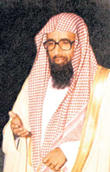
MOL CONDITION ORANGE


Links
- The Makkah school fire
- The Saudi Gazette
- Arab News (The "Green Truth")
- The Official Religious Police site (Arabic)
Email:
Alhamedi_Alanezi2004 (at) yahoo.com
Other Links

Archives
- 03/01/2004 - 04/01/2004
- 04/01/2004 - 05/01/2004
- 05/01/2004 - 06/01/2004
- 06/01/2004 - 07/01/2004
- 08/01/2004 - 09/01/2004
- 08/01/2005 - 09/01/2005
- 09/01/2005 - 10/01/2005
- 10/01/2005 - 11/01/2005
- 11/01/2005 - 12/01/2005
- 12/01/2005 - 01/01/2006
- 01/01/2006 - 02/01/2006
- 02/01/2006 - 03/01/2006
- 03/01/2006 - 04/01/2006
- 04/01/2006 - 05/01/2006
- 05/01/2006 - 06/01/2006
- 06/01/2006 - 07/01/2006